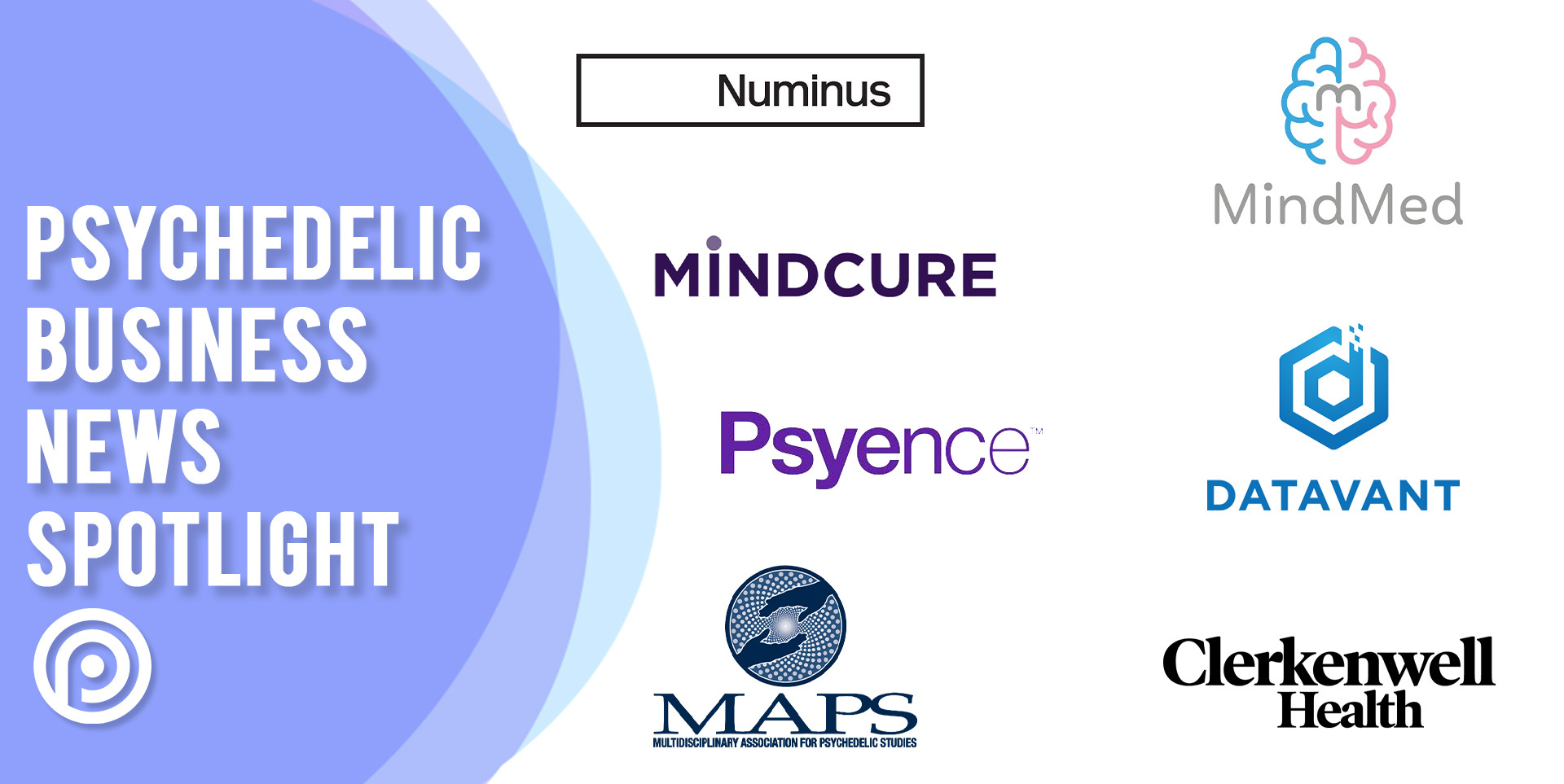
MDMA News
First up in our weekly round up of psychedelic business news, we saw huge strides in MDMA research. In 2017, the Food and Drug Administration (FDA) designated MDMA as a “breakthrough therapy” for post-traumatic stress disorder (PTSD), meaning the agency will expedite the development and review of the medication for such a serious indication based on previous studies that showed MDMA demonstrated substantial improvement over currently available therapy. The Multidisciplinary Association of Psychedelic Studies (MAPS) has been leading the effort to win regulatory approval for MDMA. Recently, significant progress has been made in this front.
This week, the Center for Psychedelic Psychotherapy and Trauma Research in the Department of Psychiatry at Mount Sinai received a $2.1 million charitable contribution from the Steven & Alexandra Cohen Foundation to help fund a large study comparing two and three sessions of MDMA-assisted psychotherapy in combat veterans diagnosed with PTSD.
“The Steven & Alexandra Cohen Foundation has been at the forefront of philanthropic giving for the benefit of our combat veterans. This generous gift will allow us to dedicate our efforts to studying the effect of MDMA-assisted psychotherapy in combat veterans with PTSD,” says Rachel Yehuda, PhD, Director of Mount Sinai’s Center for Psychedelic Psychotherapy and Trauma Research. “We are extremely grateful for their support of our mission to revolutionize the treatment of trauma survivors with psychedelic psychotherapy and better understand the mechanisms of resilience and recovery from trauma.”
Also this week, Numinus Wellness Inc., received clearance from Health Canada to conduct a single-arm, open-label, safety-and-feasibility study evaluating MDMA-assisted psychotherapy for PTSD.
Up to this point, Numinus’ research has advanced through the pre-implementation stage at its Vancouver clinic. Now, with Health Canada’s blessing, the company has received the required federal regulatory approval to move into the final stages of training staff, importing medication, and obtaining ethical approval to allow the recruitment of participants according to COVID-19 protocols.
During the study, research, medical, and therapist staff at Numinus will collect data on the safety and effectiveness of MDMA-assisted therapy to inform Health Canada and support making MDMA-assisted therapy available to individuals living with PTSD in Canada.
“As research into MDMA-assisted therapy grows, it is critical that we develop data on outcomes from a diverse, real-world array of clinical environments,” says Amy Emerson, CEO of MAPS Public Benefit Corporation, a wholly-owned subsidiary of MAPS. “Clinical studies conducted for the purpose of regulatory approval often address research questions focusing on safety and efficacy of the treatment.”
Research Partnerships
Psychedelic biotech firm MindMed announced it will begin using Datavant’s privacy-protecting health data technology to link MindMed’s clinical trial data to external data from both clinical and real-world sources. This will be done across various stages of the drug lifecycle from discovery and clinical development through commercialization.
This partnership will enable MindMed to create broad and detailed datasets to better understand the real-world treatment, service utilization, and heath care experiences of patients with psychiatric and substance use disorders.
“Data fragmentation today prevents organizations from understanding how innovative therapies can be used to improve patient outcomes,” says Datavant’s CEO Travis May. “The ability to safely connect data from across the healthcare ecosystem to understand the safety, efficacy, and access to a variety of therapeutic interventions creates the opportunity to greatly improve outcomes in psychiatry and addiction medicine.”
U.K.-based psychedelic Contract Research Organization Clerkenwell Health signed its first multi-million-dollar contract to design and run multi-phase clinical trials with Canadian-listed life sciences biotech company Psyence Group. The first studies will examine the effectiveness of psilocybin-assisted therapy for patients with end-of-life-related diagnoses. Preclinical studies will be conducted later this year with human trials expected to begin in 2022.
The trials will use natural psilocybin compounds produced at Psyence’s federally licensed facility in Lesotho in Southern Africa. The facility is designed and constructed to The British Standards Institute (BSI) and Good Manufacturing Practice (GMP) standards.
Clerkenwell will provide advisory and operation support to Psyence Group for the design and delivery of the trial, which will be conducted in the United Kingdom and aligned with European, Canadian, and U.S. trial guidelines.
Patent Updates
Mind Cure Health filed provisional patent applications with the U.S. Patent and Trademark Office for innovative processes for synthesizing ibogaine. The two chemical synthesis routes are currently being assessed to determine which will be selected first for further development.
Ibogaine is a naturally occurring compound found in the root bark of the Tabernathe Iboga shrub native to the African rainforest. Extracting ibogaine from the iboga plant can affect the consistency required of a psychedelic medicine for research purposes. But if Mind Cure’s processes prove successful, the company’s pharmaceutical grade ibogaine would provide researchers access to a sustainable, high-quality, reliable, and consistent supply of the psychedelic.
“I believe that the demand for synthetic ibogaine will increase dramatically as research in this field continues to grow. Researchers need access to a standardized, high-quality supply of ibogaine that ensures consistent dosing and reliable results,” says Kelsey Ramsden, Mind Cure’s President and CEO. “We look forward to working with researchers in the medical psychedelic industry, and ultimately supplying the broader market to treat all indications supported by research, with an eye to treating addiction at the forefront.”





